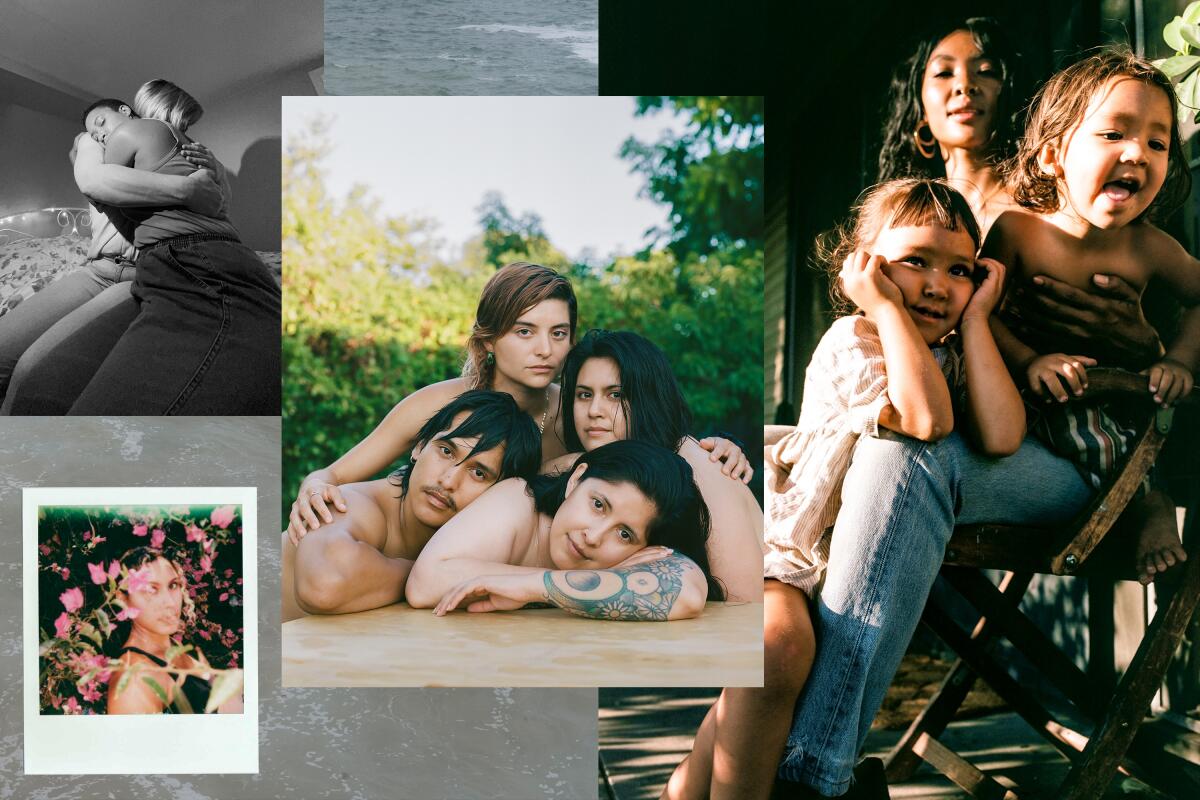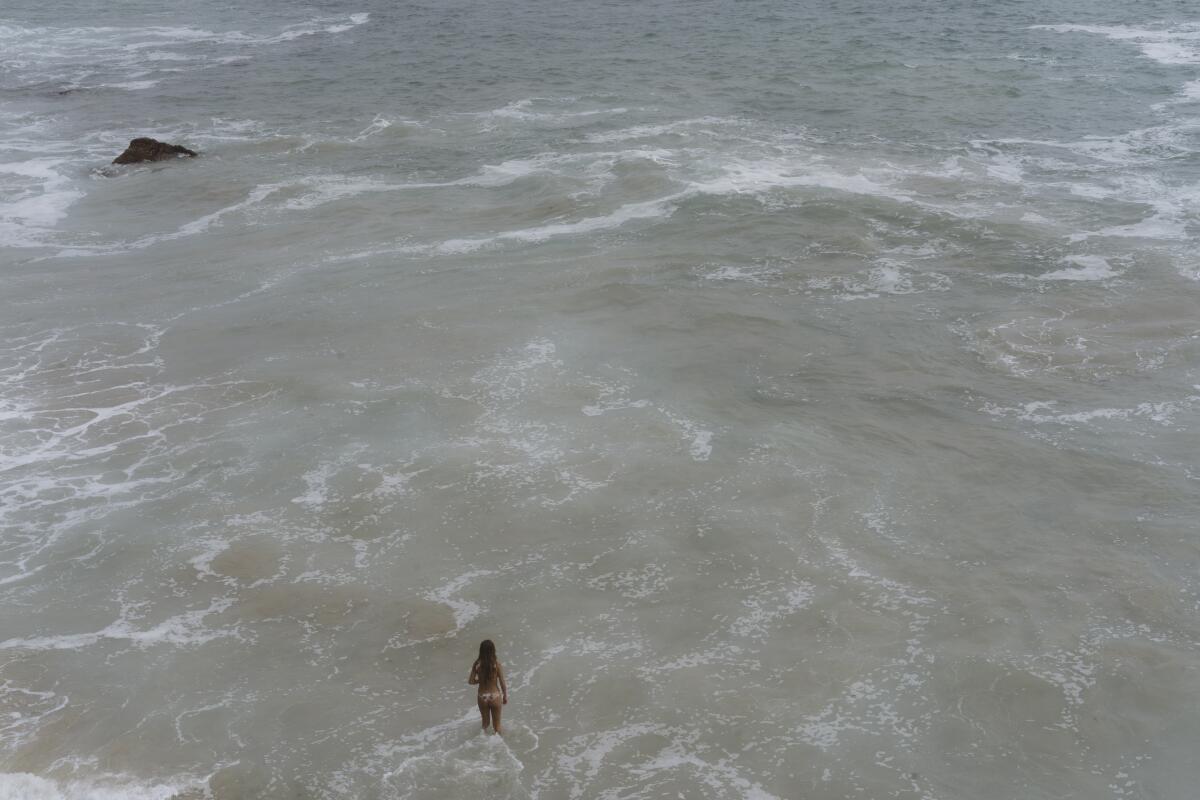Parents are cool, even if we don’t always feel like it

This is the Aug. 23, 2021, edition of the 8 to 3 newsletter about school, kids and parenting. Like what you’re reading? Sign up to get it in your inbox every Monday.
Are we still fighting about mom jeans?
I haven’t worn pants since 2011 — it’s a disability thing — and my TikTok is 95% queer zodiac memes, gentle parenting makeup tutorials and adult ADHD, so I only vaguely clocked the whole skinny jeans vs. mom jeans war of 2021. Also, truly, who cares what you’re wearing when our families are dealing with … all this?
But then, have any of you ever felt more scrutinized as a parent? More surveilled in your private spaces, more pressured to perform the right kind of caregiving? At times over the last 18 months, motherhood has felt almost like a kind of drag to me, a costume I put on for social media and in public. Except drag is about charisma, uniqueness, nerve and talent. Momming, by contrast, seems to prize quietude, conformity, beige eyeshadow and sexless, ill-fitting pants.
Which is what makes “Parents Are Cool,” the latest issue of our style magazine, “Image,” such a breath of fresh air. Evelynn Escobar’s description of childbirth as “involuntarily vomiting” felt more real to me than any birth story I’ve ever read. Jamilah Lemieux’s “refutation of the myth of the motherly aesthetic” inspired me to flick my wing a little further and add some “Euphoria”-inspired glitter to my eye makeup this morning.
Ego death is for acid trips. Parenthood is an expansion of identity, a new dimension of experience, a fold in space-time that connects our ancestors to our descendants. It’s cool by definition. L.A. Times reporter Julissa James helped capture some of the wild creativity of parenthood for the magazine. Our conversation has been edited and condensed for clarity.
8-to-3: Tell me about the genesis of “Parents Are Cool.”
Julissa James: This was birthed entirely through [features editor Ian Blair]. We wanted the entire magazine to be this eye-opener.
So many of us, myself included, have been guilty of putting parents into boxes. I’m not a parent, but I have a mother, and it was easy to forget that she was this entire human being with interests and experiences beyond being my mom. So we were trying to shake people out of this idea in this kind of cheeky way.
Parents [featured in the package] are trying to fold the idea and the act of parenting into their lives now, rather than trying to shape their lives around what they think parenting should look like or what they as parents should look like.
8-to-3: I loved that the package opens with a group of photo essays with nontraditional and nonbiological parenting and family relationships. Tell me how that happened.
James: We hired a bunch of L.A. photographers to show us what parenting and family looks like to them outside of a traditional way of seeing it.
I was raised by a single mom, so I never had the option of a nuclear family. I found care in extended family, family friends, and I think so many people found that, whether they’re queer or don’t have a relationship with their biological family.
Gabriella Angotti-Jones photographed the ocean, and talked about how the ocean has mothered her through really difficult periods of her life.

If you think about parenting as an act, if you boil it down, it’s about caring for someone, guiding someone. There’s so many different ways people have found that, especially in L.A. If you think about it, that’s maybe the most traditional, because we’re really getting down to the roots of what parenting actually is and getting people out of this really rigid perspective that we’ve built around it for years.
8-to-3: The other piece that really moved me was your piece with Evelynn Escobar about her experience giving birth at home and adopting a traditional cuarentena.
James: That’s one of my favorite pieces, just because it’s so much in Evelynn’s voice. It’s really an as-told-to. Something that she and I talked about a lot is that when you’re pregnant, people kind of dote on you — oh you look so good, do you want to sit down, etc. —and after you give birth, all that attention shifts to the baby, and the mother or the birthing parent feels unsupported. She was like, from beginning to end, I’m going to curate this experience so I feel as supported as possible. Specifically this happened for her by all Black and brown people, which she was extremely intentional about.
8-to-3: It strikes me that a lot of us come from cultures that have these kinds of practices, but we don’t always have the opportunity or the knowledge or support to embrace them. It really does have to be intentional.
James: There’s versions of this all over the world, since the beginning of time. But for Evelynn, she’s never not worked, she’s been working since she was 14 years old. [Cuarentena] was the first time in her entire life that she took 40 days off of everything. It’s six weeks for the birthing parent to focus on rest, caring for their child, breastfeeding if that’s an option, minimal movement, healing for their bodies above all.
She said something that really stood out to me: It was the first time she relinquished control and let other people take care of her while she took care of her child and herself. She loved it. She was having all these realizations, like the fact that it’s ridiculous that in a lot of places, birthing parents have to go back to work sometimes a week after birth. It’s a commentary on how we treat mothers and birthing parents after they have the baby.
The cuarentena puts the emphasis on the village. It’s not like when you give birth people automatically know how to parent. Framing it as ‘I need my community to help raise me so I can help raise my child’ is really radical.
8-to-3: Her description of her birth experience was amazing as well.
James: She was just so honest about it. It’s so striking. A lot of people are on YouTube sharing their birth experience, but a lot of us have never heard someone talk about how it feels. Even though it’s a universal experience, everyone’s experience in birth is going to be wildly different.
8-to-3: I definitely identified with Evelynn’s experience, but I also really identified with Jamilah Lemieux in her essay “Moms Gone Topless,” about her love of bras and her decision to embrace the “bras as shirts” aesthetic as a mom.
It’s one of my favorites in there. That this writer is reclaiming sexuality among mothers I think is super cool, because how does somebody become a mother in the first place? We divorce parents and sexuality completely, which is wild to me, because that’s how parents become parents.
8-to-3: What’s the reception been like for this project?
James: The reception so far has been really interesting, because it hasn’t just been parents. It’s a love letter to parents, but at the same time this was for everyone. It’s really aiming for that shift in perspective.
I think Eveylnn’s story where she talked about her birth and her cuarentena has really hit folks in a super specific way. We haven’t heard people speak about it in this way, as real and relevant and happening to someone else [the reader] would consider their peer. Especially for women that are in their early 30s or late 20s, women who are thinking about getting pregnant, it really struck a nerve.
8-to-3: It’s interesting, I remember being pregnant with my son at 29, and feeling real terror at the loss of self that was supposed to come with motherhood. Because that’s a very strong message in American culture, that parenthood transforms you into some sort of Stepford Mom.
That’s the messaging that people get when they’re pregnant, that your entire self is going to change. You just wait, your whole life is going to be focused on your baby. For someone who is youngish and considers themselves already cool, it’s a scary thing to think about: Is this all that I’m going to be now? I feel like the stories in this issue prove that it doesn’t have to be that way.
These people have kids, but they’re also living their life. Of course they’re taking care of their child, and it’s an immense amount of love. But it doesn’t have to erase who they were or who they’re going to become. That’s the point of the issue, to show them it’s possible.
Of Delta, vaccines, rituals and rats
What do you need to know about the Delta variant of the coronavirus and your kids’ safety? My colleague Amina Khan asked Mercedes Carnethon, an epidemiologist at Northwestern University’s Feinberg School of Medicine.
Culver City schools are requiring all children 12 and over to be vaccinated — a rule that appears to be the first of its kind in California.
Quinceañeras were among the rituals interrupted by the pandemic. Now they’re back, Times’ intern Andrew Mendez writes — only many of the girls being celebrated are no longer quince (15); they’re dieciséis (16).
In the newspaper business, we have a term for stories like one written by The Times’ Paloma Esquivel last week. They’re called “talkers,” because people can’t stop talking about them. In this case, the story was about a Montebello high school overrun with rats. Warning: The story contains rats. Lots of them.
Enjoying this newsletter?
Consider forwarding it to a friend, and support our journalism by becoming a subscriber.
Did you get this newsletter forwarded to you? Sign up here to get it in your inbox every week.
California parents, Unite! (And other news)
The pandemic affected parents everywhere; in San Francisco, they got organized. San Francisco Chronicle.
There’s been an explosion of COVID-19 cases among students and teachers in the Inland Empire. Riverside Press-Enterprise.
A UC Irvine study found that pregnant women who contract COVID-19 are more likely to wind up in intensive care or be put on ventilators. LAist.
Several nonprofits are teaching kids in Santa Cruz County how to eat more healthfully, mostly by letting them grow and/or cook their own food. Lookout Santa Cruz.
A charter school in the Bay Area community of Los Altos is in danger of getting shut down because it has failed to reflect the diversity of the community it serves. San Jose Mercury News.
Most of us are worried about how the pandemic is affecting our kids, but there’s a more urgent concern for many Californians: fire. In Clearlake, in Northern California, crews had to remove soot from the walls and desks of classrooms at two schools before children could be allowed back. EdSource.
Finally, if you ever wonder what kind of impact teachers are having on your children, you should read about the 6th-grade students in Altadena who got together to thank their teacher for what he taught them — in 1966. Fifty-five years later, that teacher, Kent Seegmiller, still recognized his former students when they popped up on a Zoom screen. One of them, 67-year-old Nan Senzaki, said teachers need to know that “they are in fact, planting seeds which their young students may not fully appreciate until their brains develop along with their life experiences.” Pasadena Star-News.
I want to hear from you.
Have feedback? Ideas? Questions? Story tips? Email me. And keep in touch on Twitter.
Sign up for Essential California
The most important California stories and recommendations in your inbox every morning.
You may occasionally receive promotional content from the Los Angeles Times.




